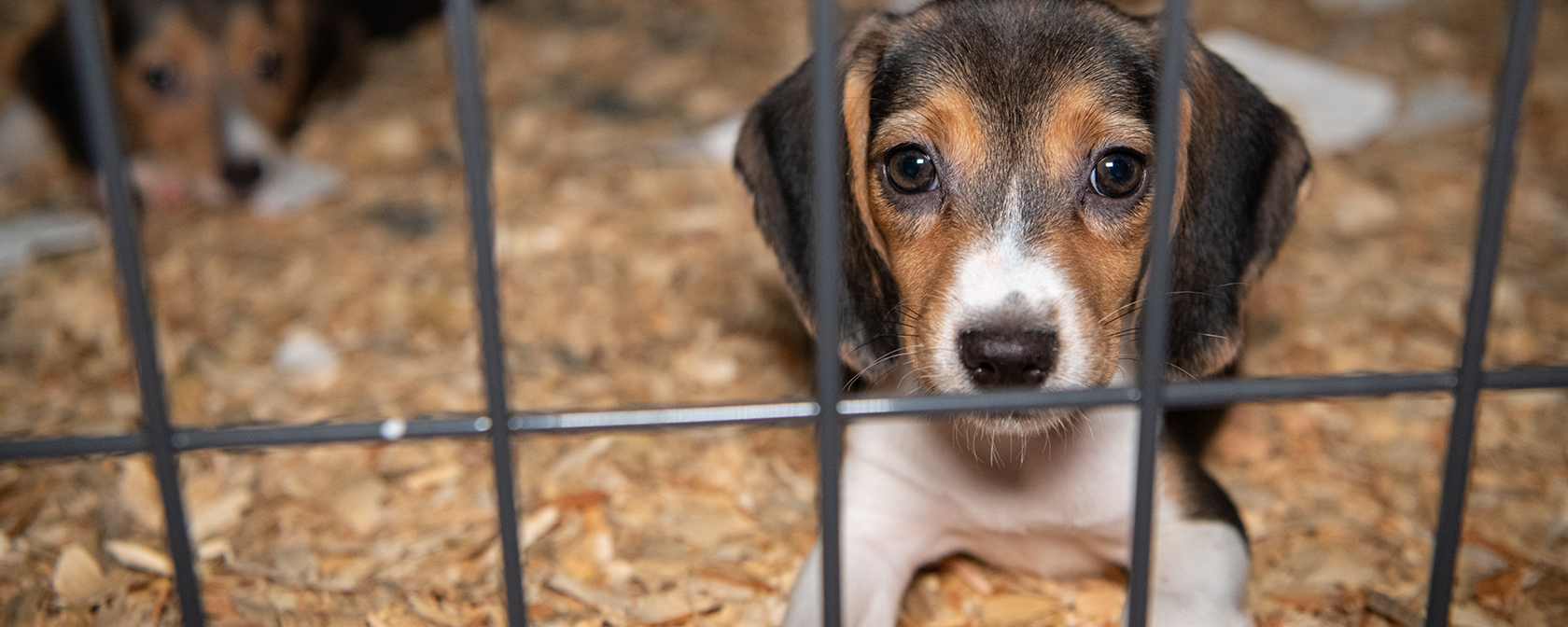By Sara Amundson and Kitty Block
Responsibility for animals’ welfare rests with us all, including the federal government. Our work spans a range of federal agencies, all of which can do something to support the prevention of animal cruelty and suffering. A whole-of-government approach is consistent with the growth of our movement and its influence, and it’s something that will enable us to confront animal cruelty more effectively in the future.
This sensibility is at the heart of the Better Collaboration, Accountability, and Regulatory Enforcement (CARE) for Animals Act. Introduced by Sens. Richard Blumenthal, D-Conn., and John Kennedy, R-La., and Reps. Guy Reschenthaler, R-Penn., and Mike Quigley, D-Ill., the bill would usher in a new era of enhanced interagency cooperation to fight cruelty and uphold the proper treatment of animals.
The bill is designed to strengthen the capabilities of the U.S. Department of Justice, which has played an important enforcement role in animal fighting cases over the years, and more recently in cases involving animal exhibitors and dealers. With greater authority the agency could do more.
The Better CARE for Animals Act would augment the relatively limited powers the DOJ has under the Animal Welfare Act (AWA) by providing more enforcement tools, including license revocations, civil penalties and a process for pursuing appropriate seizure/forfeiture in cases in which animals are suffering as a result of AWA violations.
It makes sense that those crafting the AWA in 1966 chose to designate the U.S. Department of Agriculture, with its veterinary and public health expertise, as lead agency for the development, promulgation and enforcement of standards. But in the intervening six decades, Congress has placed an increasing number of animal welfare issues and inspection and enforcement needs within the AWA’s range of coverage. Currently, it encompasses welfare concerns relating to animals bred for the pet trade and to supply laboratories, animals in entertainment and display, animals used in fighting, and animals' treatment in research and testing, among others.
Something else has changed too. Public interest in minimizing the needless suffering of animals has substantially increased, and that has stoked demand for additional protective legislation.
Capacity at the USDA has not kept pace with these developments. The agency has just three administrative law judges, not enough to handle the workload involved. Moreover, a different kind of expertise, more typically associated with the DOJ, is badly needed. The Better CARE for Animals Act is supported by appropriations language we have championed and obtained in each of the last few years, specifically calling for closer collaboration and coordination between the USDA and the DOJ.
The DOJ’s Environment and Natural Resources Division enforces the federal government’s civil and criminal environmental laws and defends against challenges to government environmental action. It has demonstrated serious commitment to animal welfare cases since its establishment, particularly in relation to the AWA’s animal fighting prohibitions.
But the DOJ has done much more, and over the last several years we have been impressed by the agency’s determination to address animal cruelty with the tools it already has under law. For example, in May 2022, the agency filed a lawsuit over shocking AWA violations at a facility owned by Envigo, a company that breeds animals for use in research and testing. A DOJ injunction led to the transfer of roughly 4,000 beagles last summer, and the company ultimately closed that facility.
In November 2020, the DOJ filed a complaint against big cat exhibitors Jeffrey and Lauren Lowe (of “Tiger King” fame) for AWA and Endangered Species Act violations (United States v. Lowe, et al.). Eventually, federal government seized 68 big cats, including lions and tigers. It sought seizure of the animals pursuant to the ESA’s civil forfeiture provision.
The DOJ brought its first puppy mill case in 2021, against a licensed dog breeder in Iowa whose facility had at least 100 AWA violations in a six-month period and who eventually entered into a consent decree that closed his operation. More than 500 dogs were removed from that puppy mill, and the DOJ helped to ensure that they went to a responsible shelter and its partner groups for placement in new homes.
Our view is that the DOJ shouldn’t have to navigate animal cruelty cases with limited enforcement tools. We have been involved in a few cases with which the USDA and/or the DOJ were connected, including the one involving the Envigo beagles, animals who HSUS responders transferred to shelter and rescue groups for adoption. The Envigo case revealed some of the challenges the USDA faces with respect to enforcement, and the need for better, stronger and more coordinated interagency action. The Better CARE for Animals Act epitomizes such an approach. It is truly a 21st century measure, one that’s worthy of a nation becoming ever more serious in its commitment to animals and their protection.
Urge your legislator to cosponsor the Better CARE for Animals Act >>
Kitty Block is CEO of the Humane Society of the United States.




